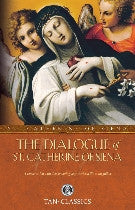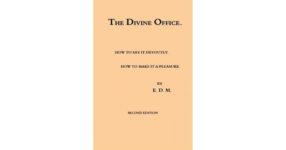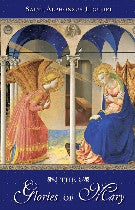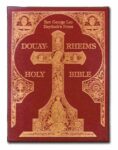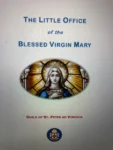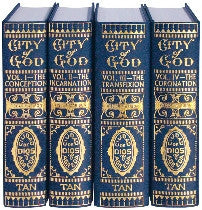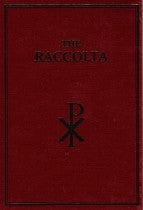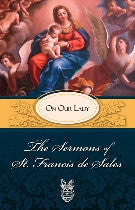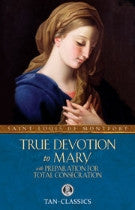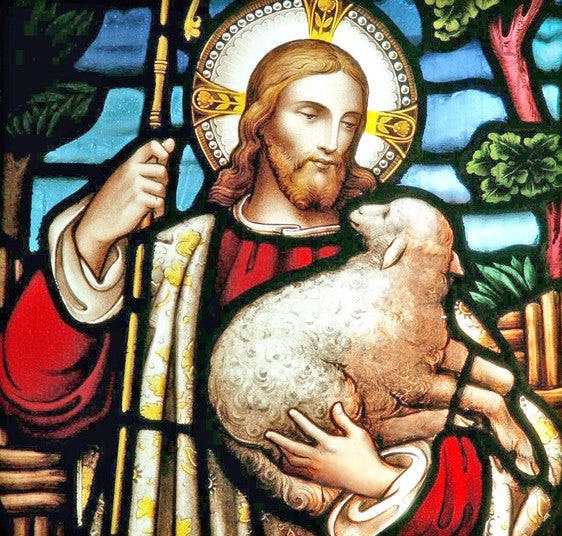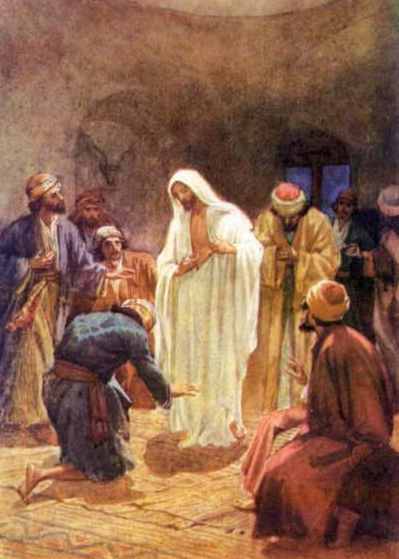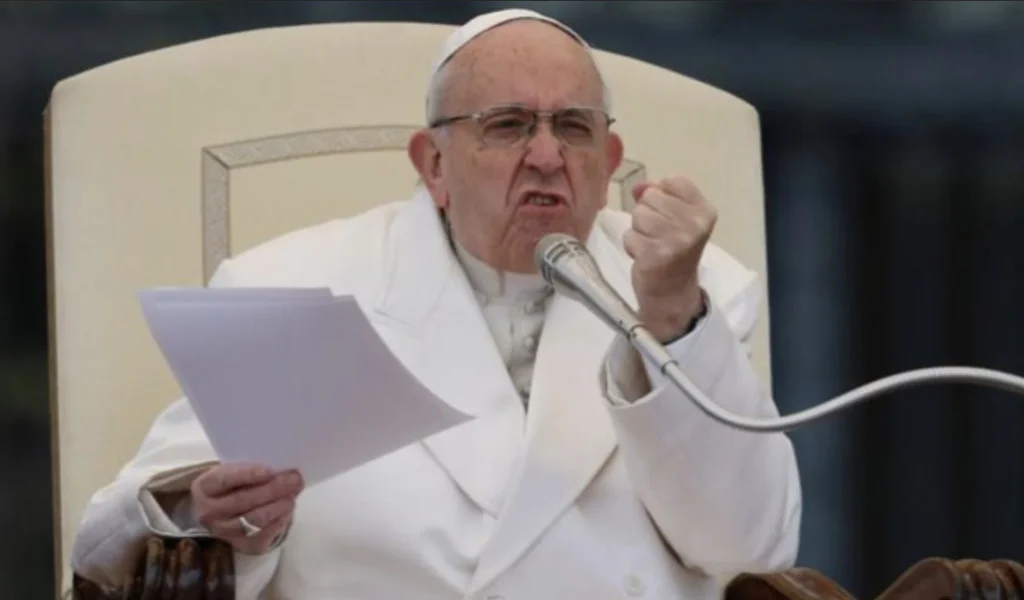Books for Eastertide

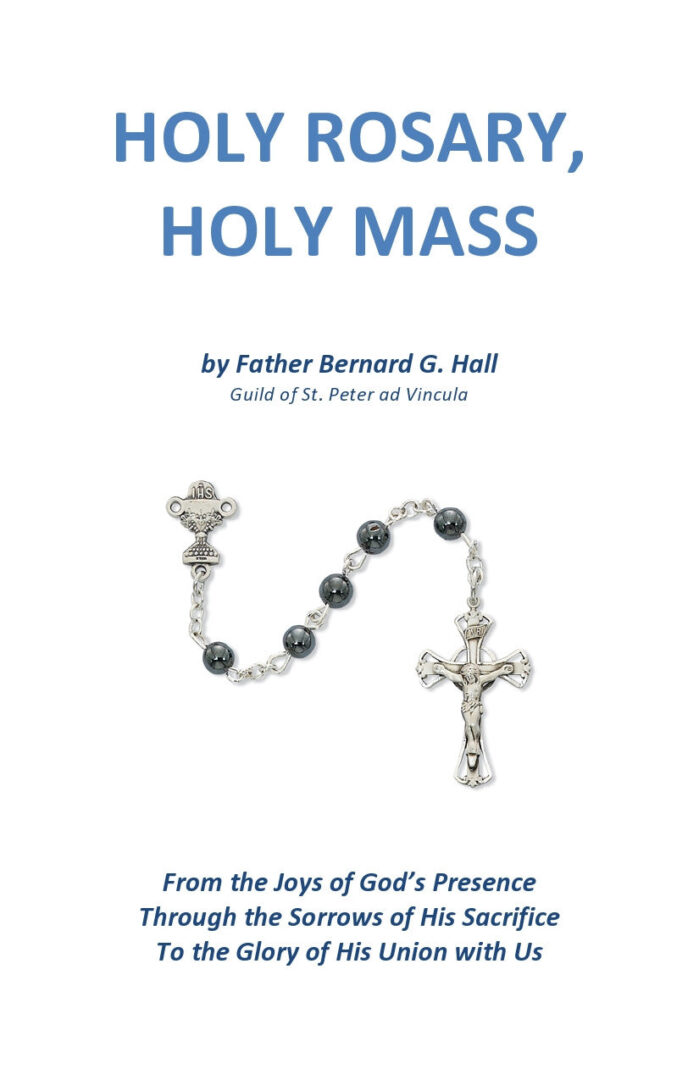
Select options This product has multiple variants. The options may be chosen on the product page
Et Reliqua
Sermons and Reflections from the Deanery
Support our apostolate

Daily Prayer of the Oblate
The Guild Prayer of Restoration
To be recited daily by Members of the Guild
Ant. Arise, O Peter, thou to whom God hath given the keys of the kingdom of heaven, and loosen the chains which bind the souls of the earthly.
℣. Thou art Peter.
℟. And upon this rock I will build my Church.
Let us pray.
Almighty and Everlasting God, / we beseech thee to restore unto this world of sin / that faith which St. Peter thy first Pope and Prince of the Apostles / did once humbly confess; / and commit once more, / through thine infinite mercy, / the government of thy Church / unto a worthy Vicar of thy Son; / that he may be bestowed with such increase of all virtues / as may be pleasing in thy sight; / and that being so adorned, / he may lift from the Church and from all nations / the heavy weight of heresy that presseth down upon us; / and rendering Christendom once more acceptable in thy sight, / may bring at length all nations / to render due homage at the feet of their divine King, / even Jesus Christ, thy Son our Lord, / who liveth and reigneth with thee, / in the unity of the Holy Ghost, / ever one God, / world without end. / Amen.
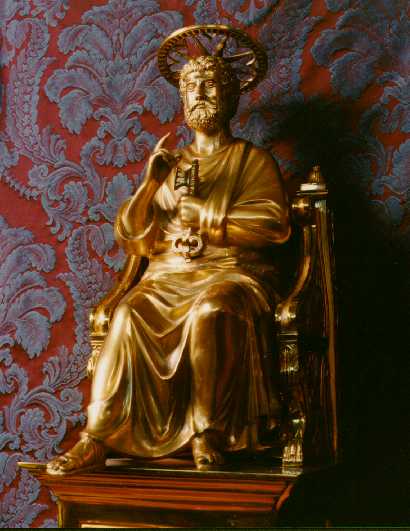
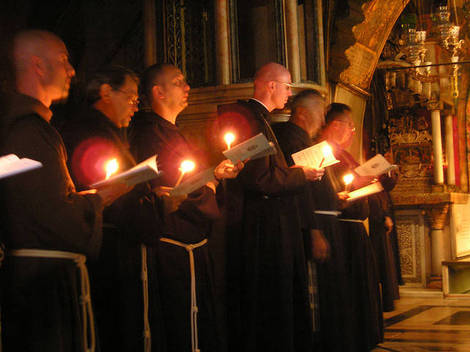
Liturgical Prayer
Other than the daily recitation of the Guild Prayer of Restoration, the only part of the Rule which all Oblates are obliged to follow is the precept to recite, on a daily basis, some form of liturgical prayer. Paragraphs 7.3.6 and 7.3.7 of the Rule explain this precept as follows:
7.3.6 THE DIVINE OFFICE
Oblates in major orders shall pray the Divine Office with becoming piety and devotion. Lay Oblates shall endeavour, according to their circumstances, to pray the whole or a part of the Divine Office according to the Roman rite, or at least the Little Office of Our Lady. Such participation in the official public prayer of the Church is a way of offering the highest and most acceptable form of prayer to God in the name of the Church. Liturgical prayer is highly encouraged, furthermore, as the key to fulfilling the Guild’s most cherished means of achieving her apostolate, and is a constant fount of graces and spiritual benefits, providing the Oblate with a daily source of material from Holy Scripture, the lives of the saints, papal decrees, and the writings of the fathers of the Church. The Divine Office may be offered for any intention, including thanksgiving for favours already received and in petition of new ones.
7.3.7 THE LITTLE OFFICE AND SHORT OFFICE FOR OBLATES
Oblates who are unable to recite either any part of the Roman Breviary or the Little Office of Our Lady, and who do not assist at any of the Canonical Hours said in community, shall pray instead the Little Office of the Oblates. For a reasonable cause, they may replace this by the Short Office for Oblates.
The Four Options
The Guild understands that our Oblates come from a variety of backgrounds, many of which preclude any kind of lengthy liturgical prayer. For this reason, the Oblate is free to choose from the four options listed in the boxes below, depending on which best fits his own individual schedule and duties of life.
The Roman Breviary
For those who have the time, the most perfect and ideal form of liturgical prayer is the daily recitation of the Divine Office contained in the Roman Breviary. Oblates are highly encouraged to practice this devotion, which bestows all manner of graces and blessings on those who recite the Breviary attentively and devoutly.
Those who do not have the time to recite the entire Office are encouraged to recite a part of it, as their schedule permits. There are many possible combinations that the Oblate would find suitable for either a fixed or flexible schedule, for example, the Morning Prayer of Prime and the Night Prayer of Compline, possibly accompanied by the scriptural lessons from Matins or the life of the saint of the day.
The Little Office of Our Lady
Prescribed by many religious orders and congregations for their Oblates and Third Order members, the Little Office of Our Lady is an excellent method for the laity to gain some familiarity with a form of liturgical prayer. With very few changes during the course of the year, the Oblate will quickly find the prayers to be a familiar and welcome part of his prayer life.
Like the Roman Breviary, the Oblate is free either to say the entire Little Office, or adapt a combination of Hours that fits his schedule.
Little Office of the Oblates
The Little Office of St. Peter ad Vincula is similar to the Little Office of Our Lady in that the form of the Office changes little or not at all from day to day.
The Little Office follows the same canonical Hours as the Roman Breviary, and the guidelines for scheduling these Hours should be maintained as closely as possible. This helps the Oblate to sanctify his whole day, while keeping the spirit of the Guild.
Once again, the whole or a part of the Little Office may be said, according to the schedule and lifestyle of the Oblate.
Short Office of the Oblates
The shortest option for the Oblate to satisfy his oblgation of reciting some form of liturgical prayer is the Short Office of St. Peter ad Vincula.
The Short Office consists of only two canonical Hours: Matins and Evensong. Both Hours contain a very short form of the Office, based on the format of Lauds / Prime and Vespers / Compline.


